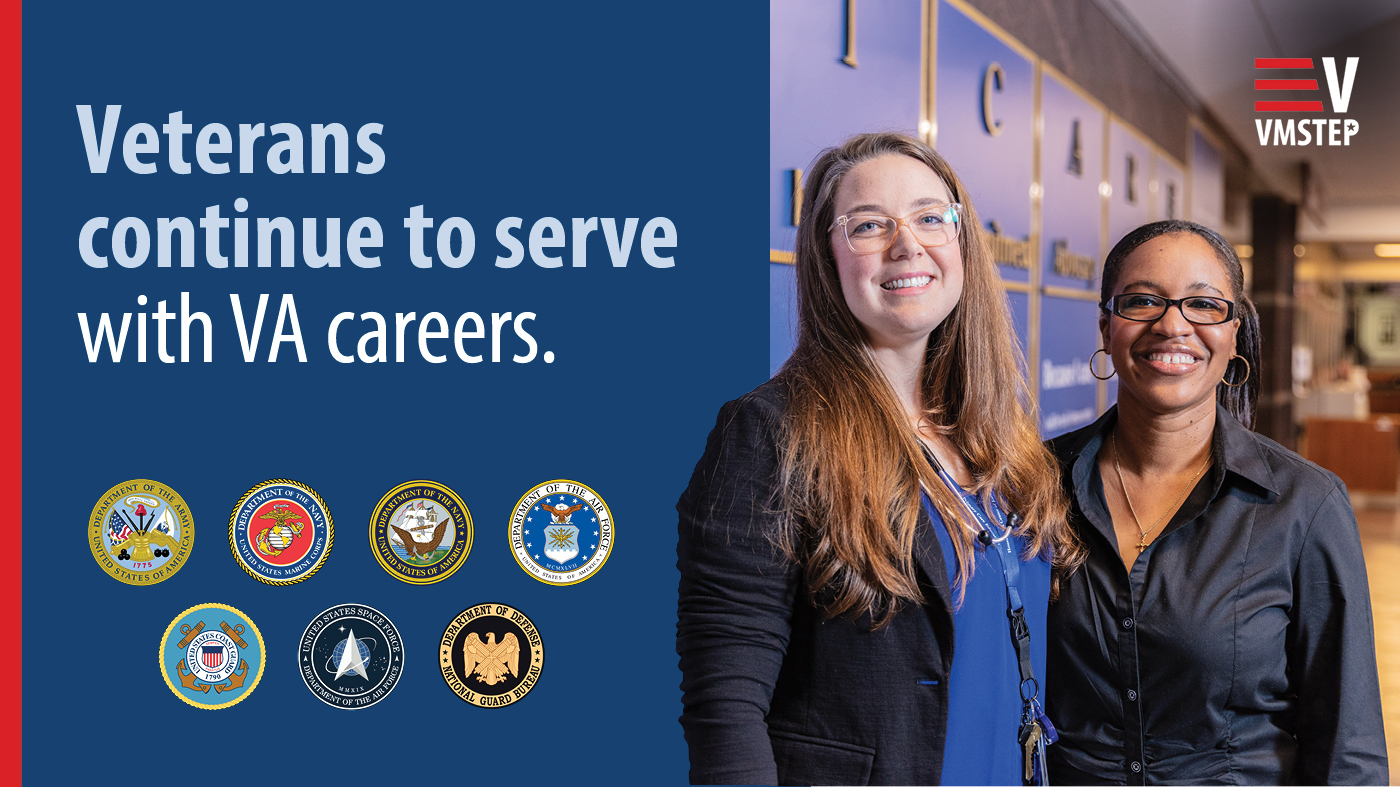As VA continues to provide better service than ever before, wouldn’t it feel good to contribute even more to the mission of serving our Veterans? With a few smart strategies and a solid plan of attack, you can. Regardless of where you are in your career, setting and achieving your career goals helps you give your best so VA can give Veterans and their families the care they deserve.
Here are a few tips for making your VA career goals a reality. (For help on setting goals to begin with, check out this guide to creating SMART goals, which are Specific, Measurable, Attainable, Relevant and Time-bound.)
- Make a step-by-step plan
Breaking your goal into small steps makes it easier to conquer. Athletes know this well; that’s why a marathoner starts her training with just a mile or two. You might create daily tasks for yourself or develop monthly milestones – but whatever you decide, make sure your plan has specific steps that seem manageable to you.
There are many resources available to help you set and keep track of goals. Find step-by-step guidance for common VA career goals – including building new skills and finding a different job at VA – using the Career Steps in MyCareer@VA’s Career Hub. Or, you can build on a goal from your individual development plan (IDP). No matter how you do it, just be sure to break up your goal into clear steps.
- Create good habits
New York Times bestselling author Charles Duhigg has spent a lot of time studying the power of habits. Taking steps to create good habits, like those listed here, can help you reach your goals.
- Make a routine. Take a little time each day or week to work on your goal. Schedule this time on your calendar to make sure you don’t forget. For example, if your goal is to meet more people in your field, you might book 30 minutes each Monday afternoon to create an elevator pitch to introduce yourself to new people at VA.
- Use simple cues. A cue is something that reminds you to act. Cues can be activities or even objects. So, to remind yourself to take an online career development course, you might leave the headphones you’ll need for that course on your keyboard before heading out for the day.
- Reward yourself. Rewards encourage new habits. They can be short-term (like watching your favorite television show), long-term (like a promotion), or both. It can be as simple as reminding yourself of the Veterans who have sacrificed for us that will be better served by your new skills. Knowing a reward is coming makes it more likely that you’ll stick to your plan.
- Tell someone else
Telling someone about your goal helps you hold yourself responsible for staying on task. Plus, when you feel discouraged, your friends can remind you why your goal was important to you in the first place.
The person you tell can be anyone you think will do a good job of holding you to your word – for instance, a friend, mentor, family member, or coworker. Schedule regular check-ins to talk about the progress you’ve made. Then, ask your friend to be honest with you about where he or she sees room for improvement.
Need ideas for goals to set for your career? Browse a variety of career development topics and activities in the MyCareer@VA Library. And, don’t forget to use your personalized MyCareer@VA Career Hub to set and track all of your career goals in one place. To stay up to date with career advice and articles like this one, sign up for MyCareer@VA email updates.
Topics in this story
More Stories
You had questions, we had answers. Take a look at the information and advice we shared that had the most impact with readers in 2024.
For Veterans, the mission does not end when the uniform comes off. VA careers offer opportunities to serve while building fulfilling civilian careers.
Whether it’s access to the great outdoors or a calmer pace in your everyday life, you can find it in rural VA communities around the country.






